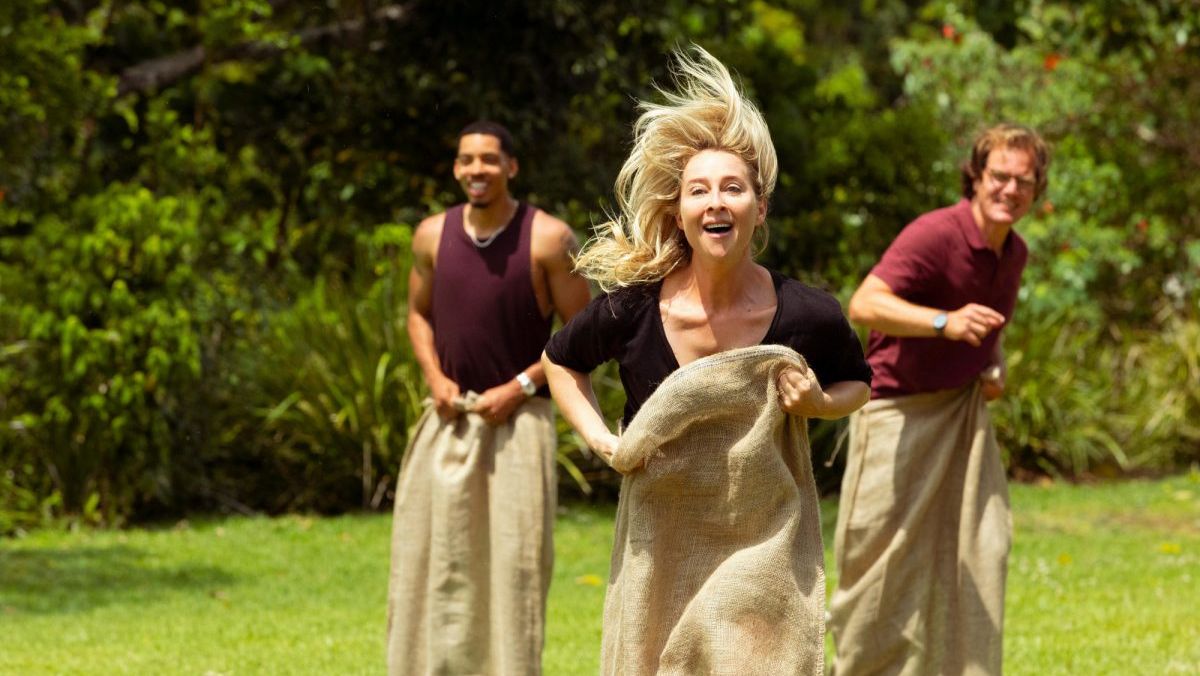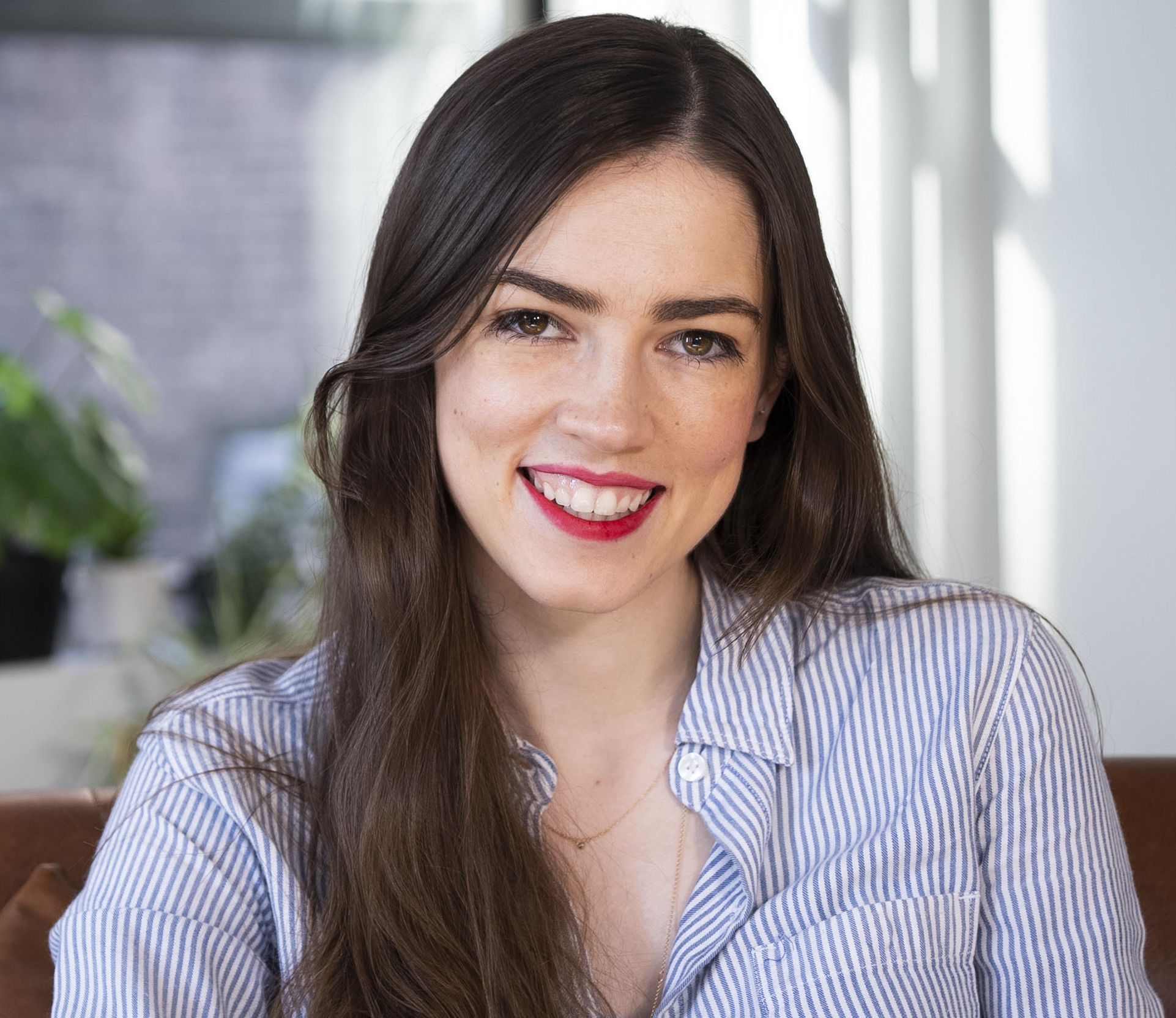The 'Nine Perfect Strangers' Book vs. the Hulu Series: All the Differences
The series takes inspiration from the novel—but sharply diverges after episode one.


Like previous Nicole Kidman/David E. Kelley vehicles The Undoing and Big Little Lies, the new Hulu series Nine Perfect Strangers is based on a hit book—and, in fact, a book written by bestselling Australian authorLiane Moriarty, who also penned Big Little Lies. Published in 2018, Nine Perfect Strangers the book features all the same key characters as the series—Masha; Tony; Francis; Napoleon, Zoe, and Heather Marconi; Ben and Jessica; Lars; Yao and Delilah; and Carmel—but the plot of the series diverges sharply from the book's after the first episode.
As with Big Little Lies, the book Nine Perfect Strangers is set in an entirely different country than the series. Moriarty's novel is set in Australia, but David E. Kelley moved the adaptation to the States (even though, confusingly, the series was actually filmed in Australia). But, again, as with Big Little Lies, Kelley kept Moriarty's cast of characters and simply adapted the plot for Nine Perfect Strangers the series to make it better suited to a television format. Ahead, a guide to what's notably different and similar between the series and the hit book. Spoilers ahead for episodes 1-4 of Nine Perfect Strangers.
In the book, Masha does not receive threatening messages.
In many ways, Masha of the book is the same Masha that is brought to life by Nicole Kidman: platinum blonde, striking, self-assured, and originally from Russia. In the book, Masha considers herself a personal savior for the guests in her wellness retreat, willing to go to any lengths to help them re-connect with themselves, and that's reflected in the series.
But the series introduces a new storyline: the threatening texts Masha receives. The series hints that it's someone at the retreat, one of the guests or Delilah or Yao, especially since the anonymous threat-maker films Masha during her morning swim in episode three (and this is private property, you'd assume). But the Masha of the book would probably react to such texts in the exact same way Masha of the series does: with cool, superior detachment.
In the series, Carmel has violent tendencies.
Carmel of the book is a sweet, reassuringly ordinary woman who has spent the last decade raising her daughters—the same daughters who are now away with her ex-husband and the younger, extremely attractive woman he left Carmel for. In the aftermath of the betrayal, Carmel of the book suffers with body dysmorphia and is forced to reevaluate her life choices, but she does not exhibit any violent or dangerous tendencies.
The Carmel of the series is played to perfection by Regina Hall, but the character herself is quite different. This Carmel has faced the same betrayal, but the experience has left her with violent tendencies—perhaps she's always had them?—which we see in episode three when she tries to attack Lars and tells Jessica she wants to punch her. She's a sympathetic character, but one that we can't quite trust, one that seems capable of going off the rails at any point.
In the book, the guests do not consent to being drugged.
In Moriarty's book, the guests of Tranquillum House only learn they've been drugged towards the end of their stay, during a climactic final day. Before that, they'd noticed some behavioral changes, but nothing as dramatic as in the series—no violence, for example. But it only takes three episodes of the series for the guests, specifically Heather, to realize that their smoothies are spiked with psychedelics. From there, the series deviates quite dramatically from the book, because each of the guests know they're micro-dosing and are actively consenting to it, drinking their smoothies—which, in the series, become increasingly potent—with full knowledge of their contents.
Get exclusive access to fashion and beauty trends, hot-off-the-press celebrity news, and more.

In the book, it's also Heather who's the first to realize they're being drugged—and towards the end, the guests are given higher doses, which is what sparks Heather's realization—but the guests never once consent to the process.
In the series, the activities of Tranquillum House are quite different.
While the guests of the book do meet one-on-one with Masha, many of the mandated activities of the series—the sack race, Earth Day, the introductory session—make no appearance in the book. Actually, Tranquillum House seems more typically wellness retreat-like in the book, with guests going on hikes, doing fasts, choosing their own activities, and practicing a "noble silence" for five straight days.
In the series, it's more actively transformative, with back-to-back mandatory activities that are better suited to a television series. (Five days of "noble silence" probably wouldn't have translated well.)
In the series, Yao, Delilah, and Masha have strong sexual bonds.
In the series, Delilah and Yao are a couple, but both are hinted to be sexually connected to Masha—it's not immediately clear whether they've had or are actively having sex with her, but there's a lot of sexual energy between the three of them.
In the book, Yao and Delilah aren't a couple—though they do have sex in a detached, friends-with-benefits way—and neither has sex with Masha, although Yao has a huge crush on his boss that Masha is able to use to her advantage.

Jenny is the Digital Director at Marie Claire. A graduate of Leeds University, and a native of London, she moved to New York in 2012 to attend the Columbia University Graduate School of Journalism. She was the first intern at Bustle when it launched in 2013 and spent five years building out its news and politics department. In 2018 she joined Marie Claire, where she held the roles of Deputy Digital Editor and Director of Content Strategy before becoming Digital Director. Working closely with Marie Claire's exceptional editorial, audience, commercial, and e-commerce teams, Jenny oversees the brand's digital arm, with an emphasis on driving readership. When she isn't editing or knee-deep in Google Analytics, you can find Jenny writing about television, celebrities, her lifelong hate of umbrellas, or (most likely) her dog, Captain. In her spare time, she writes fiction: her first novel, the thriller EVERYONE WHO CAN FORGIVE ME IS DEAD, was published with Minotaur Books (UK) and Little, Brown (US) in February 2024 and became a USA Today bestseller. She has also written extensively about developmental coordination disorder, or dyspraxia, which she was diagnosed with when she was nine.
